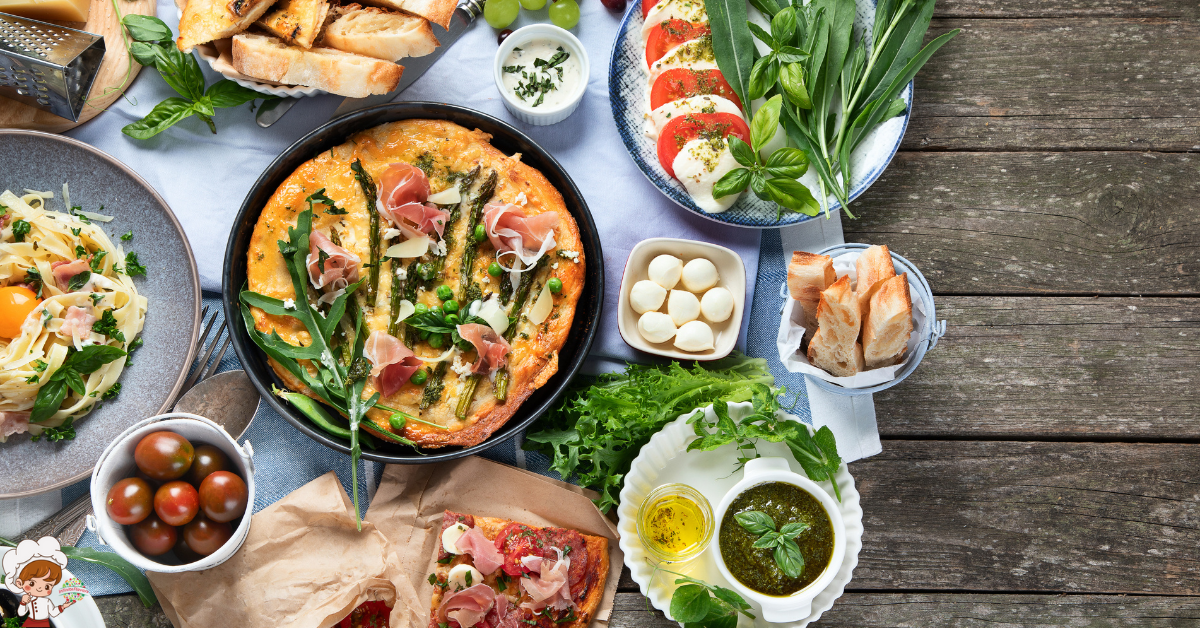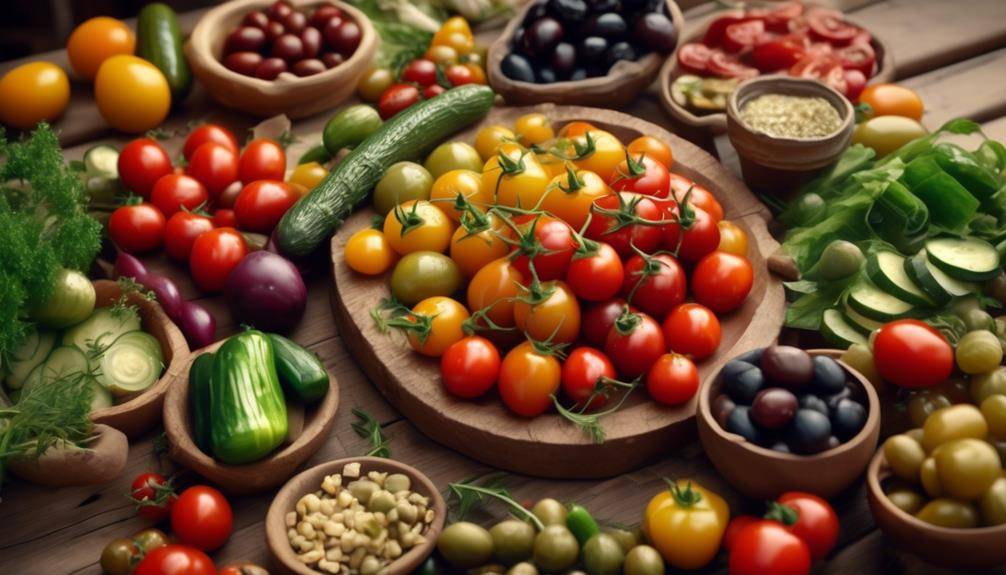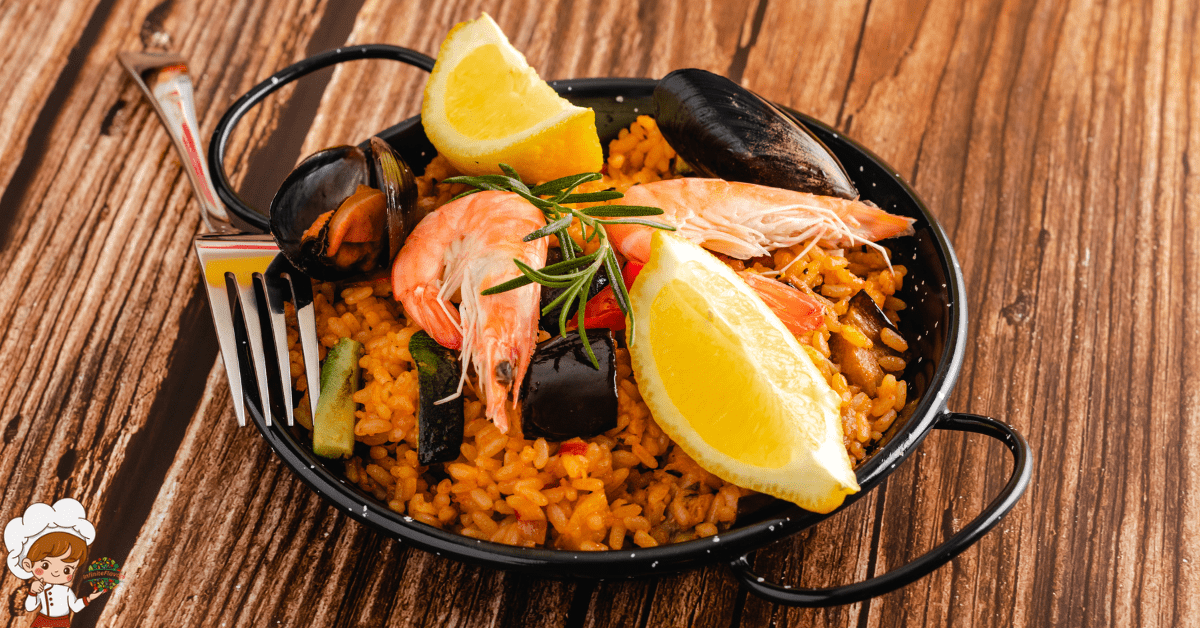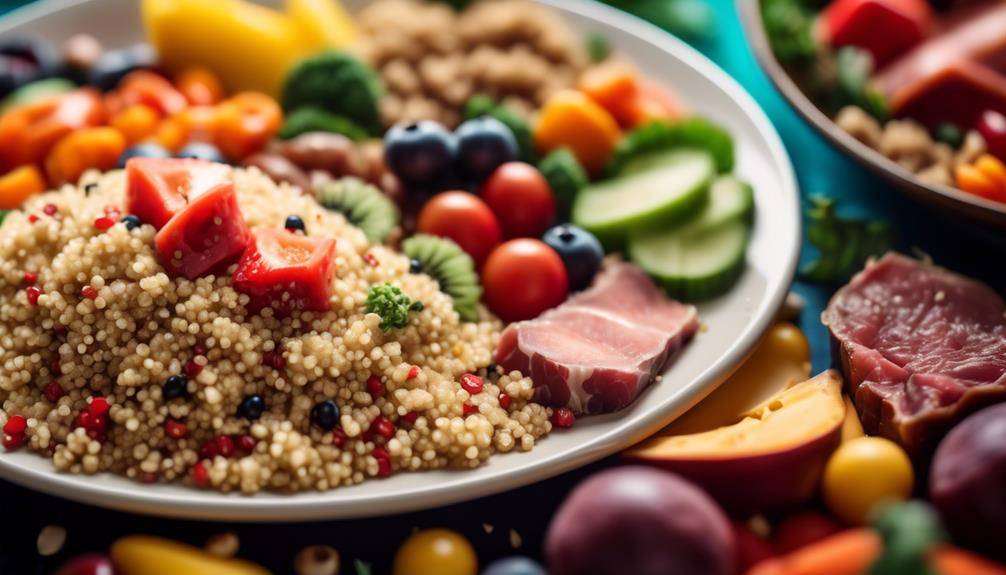6 Amazing Tips For Cooking Seasonal Vegetarian Dishes
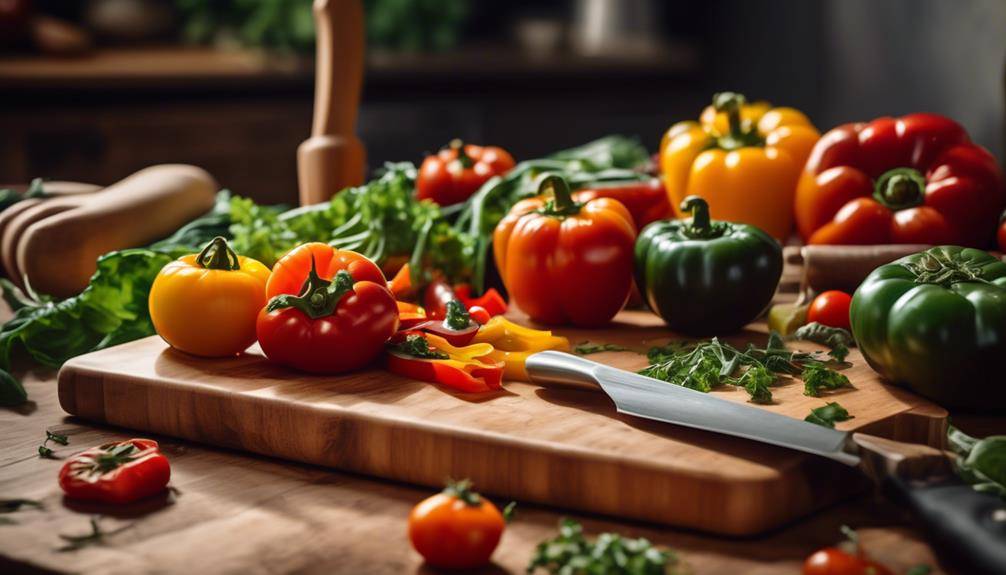
Tips For Cooking Seasonal Vegetarian Dishes; Are you tired of the same old vegetarian dishes? Ready to spice up your meals with the vibrant flavors of each season? Look no further. In this discussion, we will explore six tips to help you create delicious, seasonal vegetarian dishes that will leave your taste buds yearning for more. So, get ready to tantalize your palate and discover new ways to make your vegetarian cooking truly shine.
Plan Your Meals in Advance
To make the most of cooking seasonal vegetarian dishes, it is essential to plan your meals in advance. Meal planning is a crucial aspect of time management when it comes to cooking. By taking the time to plan your meals ahead, you can save yourself the stress of last-minute decisions and ensure that you have all the necessary ingredients on hand.
When it comes to meal planning, start by considering the fruits and vegetables that are in season. This not only guarantees that you are using the freshest produce available, but it also allows you to explore different flavors and textures throughout the year. For example, in the summer, you can enjoy vibrant salads with crisp lettuce, juicy tomatoes, and refreshing cucumbers. In the winter, you can experiment with hearty root vegetables like carrots, parsnips, and sweet potatoes.
Once you have identified the seasonal produce you want to incorporate into your meals, it’s time to plan your recipes. Look for inspiration in cookbooks, online resources, or even by asking friends and family for their favorite vegetarian dishes. Consider the time you have available to cook and choose recipes that fit your schedule. If you know you have a busy week ahead, opt for quick and easy recipes that require minimal prep and cooking time.
Get to Know Your Local Farmers’ Market
Ready to take your cooking to the next level? One of the best ways to do so is by getting to know your local farmers’ market. Not only will you have access to the freshest and most flavorful produce, but you’ll also be supporting local agriculture and the farmers who work hard to provide us with delicious ingredients. So grab your shopping bag and get ready to explore the vibrant, bustling world of your local farmers’ market.
Fresh and Local Produce
Get to know your local farmers’ market, where you can find an abundance of fresh and locally sourced produce for your seasonal vegetarian dishes. The farm-to-table movement has gained popularity in recent years, and for good reason. By eating local, you not only support your community’s farmers and economy, but you also enjoy numerous benefits. Fresh produce from the farmers’ market is picked at its peak ripeness, ensuring optimal flavor and nutritional value.
Additionally, buying local reduces the carbon footprint associated with long-distance transportation. You can trust that the produce you find at the farmers’ market is grown with care and without harmful pesticides or genetically modified organisms. So, next time you’re planning a seasonal vegetarian meal, make it a point to visit your local farmers’ market and experience the joy of cooking with fresh, locally sourced ingredients.
Supporting Local Agriculture
Now that you understand the benefits of fresh and local produce, let’s explore how you can support local agriculture by getting to know your local farmers’ market. Supporting local agriculture is not only good for your health, but it also benefits the community and the environment. By purchasing produce from local farmers, you are directly supporting small farms and helping to sustain local economies. Local farmers’ markets offer a wide variety of fruits, vegetables, and other products that are grown or produced nearby.
Not only can you find fresh, seasonal produce, but you can also discover unique and heirloom varieties that are not commonly found in supermarkets. Additionally, shopping at farmers’ markets allows you to connect with the people who grow your food, providing an opportunity to learn about their farming practices and build a relationship with your local agricultural community. So, next time you’re looking to buy produce, consider visiting your local farmers’ market and supporting small farms in your area.
Embrace the Flavors of Each Season
Embrace the vibrant flavors that each season brings, and let them inspire your culinary creations. Cooking seasonal vegetarian dishes not only ensures that you are using the freshest ingredients available, but it also allows you to explore a variety of flavors and textures that are unique to each time of year. Whether you’re planning a special occasion meal or creating a seasonal vegetarian menu for a week, incorporating the flavors of the season will elevate your dishes to a whole new level.
For special occasions, consider incorporating seasonal vegetables and fruits into your dishes. In the spring, think of vibrant asparagus, peas, and strawberries. These ingredients can be used to create refreshing salads, light soups, or delicate tarts that will impress your guests. In the summer, take advantage of the abundance of tomatoes, zucchini, and berries. Grilled vegetables, colorful salads, and fruity desserts will add a burst of flavor to your menu. Fall brings a bounty of root vegetables, squash, and apples. Roasted vegetables, hearty stews, and comforting apple desserts will warm your soul. And in the winter, embrace the earthiness of root vegetables, kale, and citrus fruits. Hearty soups, roasted vegetables, and citrus-infused desserts will keep you cozy.
When creating a seasonal vegetarian menu for a week, plan your meals around the produce that is in season. Visit your local farmer’s market or grocery store and see what ingredients are at their peak. Incorporate these ingredients into your meals for a week of flavorful and nutritious dishes. Not only will you be supporting local farmers, but you will also be able to enjoy a variety of flavors throughout the week.
Embracing the flavors of each season will not only enhance your vegetarian dishes but will also allow you to fully appreciate the natural beauty and diversity of the culinary world. So go ahead, experiment with seasonal ingredients, and let your taste buds be your guide.
Experiment With Different Cooking Methods
Expand your culinary repertoire and elevate your seasonal vegetarian dishes by exploring a wide range of cooking methods. Don’t limit yourself to just one way of cooking your vegetables. By experimenting with different cooking techniques, you can bring out unique flavors and textures in your dishes. Here are some creative recipe ideas to get you started.
- Roasting: Roasting vegetables brings out their natural sweetness and enhances their flavors. Try tossing root vegetables like carrots, parsnips, and beets with olive oil, salt, and pepper, then roast them in the oven until they’re tender and caramelized. You can also roast cauliflower or Brussels sprouts with spices like cumin or paprika for added depth of flavor.
- Grilling: Grilling vegetables adds a smoky char and delicious charred marks. Slice eggplants, zucchinis, or bell peppers and grill them until they’re tender and slightly charred. Serve them as a side dish or use them as a topping for salads or sandwiches.
- Stir-frying: Stir-frying is a quick and easy way to cook vegetables while retaining their crunch. Heat some oil in a wok or a skillet, add your favorite veggies like broccoli, snap peas, or bok choy, and stir-fry them until they’re vibrant and just tender. Finish with a splash of soy sauce or a drizzle of sesame oil for added flavor.
- Steaming: Steaming is a gentle cooking method that preserves the nutrients and natural flavors of vegetables. Steam vegetables like spinach, carrots, or asparagus until they’re tender-crisp. You can then season them with a sprinkle of sea salt or a squeeze of lemon juice.
Incorporate a Variety of Seasonal Vegetables
To create vibrant and diverse seasonal vegetarian dishes, it is essential to incorporate a wide variety of fresh vegetables into your recipes. Meal planning becomes more exciting and sustainable when you focus on using vegetables that are in season. Not only does this ensure that you’re getting the freshest produce available, but it also supports sustainable farming practices.
When planning your meals, take the time to research what vegetables are in season during that particular time of the year. This will help you choose the right ingredients for your dishes and make the most out of the flavors that nature has to offer. Incorporating a variety of seasonal vegetables not only adds color and texture to your meals but also provides a range of nutrients that are essential for a well-balanced diet.
By using vegetables that are in season, you are not only supporting local farmers but also reducing the environmental impact of your food choices. Seasonal vegetables require less transportation and refrigeration, which means fewer emissions and a smaller carbon footprint. Additionally, supporting sustainable farming practices helps to preserve the soil and protect biodiversity.
When incorporating a variety of seasonal vegetables into your recipes, don’t be afraid to experiment with different cooking methods. Roasting, grilling, sautéing, or even enjoying some vegetables raw can bring out unique flavors and textures. You can also try combining different vegetables together to create interesting and delicious combinations.
Don’t Forget About Seasonal Fruits
Now that you’ve learned how to incorporate a variety of seasonal vegetables into your cooking, it’s time to turn your attention to seasonal fruits. Don’t forget that fruits can add a burst of freshness and natural sweetness to your dishes. Whether you’re making a salad, a dessert, or a refreshing beverage, incorporating seasonal fruits will not only enhance the flavor but also provide you with essential nutrients. So, let’s explore some fresh fruit options and discover how to incorporate their seasonal flavors into your vegetarian dishes.
Fresh Fruit Options
Don’t miss out on the vibrant flavors of seasonal fruits when cooking vegetarian dishes – they’re the perfect way to add a burst of freshness and natural sweetness to your meals. Get the most out of these delectable fruits with these three fresh fruit options:
- Fruit Preservation: Extend the lifespan of your seasonal fruits by preserving them. Try making fruit jams, jellies, or compotes to enjoy their flavors all year round. You can also freeze fruits for later use in smoothies or baked goods.
- Creative Fruit Desserts: Take advantage of the natural sweetness of seasonal fruits to create delicious and healthy desserts. Bake a fruit crumble, make a fruit salad with a tangy dressing, or whip up a refreshing fruit sorbet. Get creative and experiment with different combinations and flavors.
- Fruit Salsas: Add a burst of flavor to your vegetarian dishes by incorporating fruit salsas. Combine diced fruits like mango, pineapple, or watermelon with herbs, lime juice, and a touch of spice. Use it as a topping for tacos, salads, or grilled vegetables.
Incorporating Seasonal Flavors
As you explore the world of incorporating seasonal flavors into your vegetarian dishes, it’s important to remember the incredible impact that seasonal fruits can have on your culinary creations. Seasonal fruits not only add vibrant colors and fresh flavors to your dishes but also provide essential nutrients and antioxidants. Whether you are preparing seasonal vegetarian dishes for special occasions or simply incorporating seasonal flavors into your everyday cooking routines, fruits like berries, melons, and citrus can elevate your dishes to new heights.
For special occasions, consider making a colorful fruit salad with a variety of ripe, juicy fruits or a refreshing fruit salsa to accompany your main dish. In your everyday cooking, try adding sliced fruits to salads, blending them into smoothies, or using them as toppings for pancakes or oatmeal. Don’t forget to experiment with different combinations of fruits to create unique and delicious flavor profiles. By embracing seasonal fruits, you can make your vegetarian dishes burst with freshness and flavor.
Stock up on Pantry Staples for Easy Meal Preparation
To make meal preparation a breeze, make sure your pantry is stocked with essential staples that will help you whip up delicious vegetarian dishes in no time. By having these key items on hand, you’ll be able to create flavorful and nutritious meals without having to run to the store every time you want to cook. Here are three pantry staples that are a must-have for easy meal preparation:
- Grains and Legumes: Keeping a variety of grains and legumes in your pantry is essential for meal planning. From rice and quinoa to lentils and chickpeas, these versatile ingredients form the base of many vegetarian dishes. They provide a good source of protein, fiber, and complex carbohydrates, making them a nutritious addition to any meal. Plus, they have a long shelf life, making them perfect for food storage.
- Canned Tomatoes: Canned tomatoes are a pantry staple that can be used in a multitude of vegetarian recipes. Whether you’re making a classic marinara sauce, a hearty chili, or a comforting soup, canned tomatoes add depth and richness to your dishes. They are packed with vitamins and antioxidants, and their long shelf life ensures you always have a flavorful base for your meals.
- Spices and Herbs: A well-stocked spice rack is essential for adding flavor to your vegetarian dishes. From aromatic spices like cumin, coriander, and paprika to versatile herbs like basil, thyme, and rosemary, having a variety of spices and herbs at your disposal allows you to create a wide range of flavors. They can transform a simple dish into a culinary delight, enhancing the taste and aroma of your meals.
Try New Spices and Herbs to Enhance Flavors
Ready to take your seasonal vegetarian dishes to the next level? One way to do that is by trying out new spices and herbs that will enhance the flavors of your meals. Experiment with flavorful spice combinations like cumin and coriander or paprika and turmeric. Don’t forget to add fresh herbs like basil, thyme, or cilantro for an extra burst of taste. By exploring new flavors, you’ll transform your dishes into culinary masterpieces that will impress your taste buds and your guests.
Flavorful Spice Combinations
Enhance the flavors of your seasonal vegetarian dishes by exploring new and exciting spice combinations, adding a burst of aromatic and tantalizing notes to your culinary creations. Experimenting with different spices and herbs can elevate your dishes to new heights and introduce you to a world of flavors you may not have experienced before. Here are three flavorful spice combinations that can take your vegetarian dishes to the next level:
- Cumin, coriander, and turmeric: This combination is perfect for adding warmth and depth to your dishes. Cumin brings a nutty flavor, coriander adds a citrusy note, and turmeric brings a vibrant yellow color.
- Paprika, garlic, and thyme: This trio is great for adding a smoky and savory flavor. Paprika adds a mild heat, garlic brings its unique pungency, and thyme adds a herbaceous touch.
- Ginger, cinnamon, and cardamom: This combination is perfect for adding a hint of sweetness and warmth to your dishes. Ginger adds a spicy kick, cinnamon brings a sweet and woody flavor, and cardamom adds a floral and citrusy note.
Fresh Herbs for Taste
Elevate the flavors of your seasonal vegetarian dishes to new heights by incorporating an array of fresh herbs, allowing you to explore a world of taste sensations and create truly unforgettable culinary experiences. Fresh herbs not only add a burst of flavor to your dishes but also offer numerous health benefits. When cooking with fresh herbs, it’s important to know how to use them properly to extract their full potential.
One cooking technique to maximize their flavors is to add them towards the end of cooking, as heat can diminish their taste. Another technique is to gently bruise the herbs before adding them to release their essential oils. Basil, cilantro, rosemary, thyme, and parsley are just a few examples of herbs that can elevate the taste of your vegetarian dishes. Experiment with different combinations to find the perfect balance and enjoy the health benefits that fresh herbs bring to your table.
Make Use of Leftovers and Reduce Food Waste
To make the most of your seasonal vegetarian dishes and reduce food waste, consider getting creative with your leftovers. By finding new ways to repurpose and reinvent your leftover ingredients, you can not only save money but also contribute to a more sustainable lifestyle. Here are three tips to help you make the most of your leftovers and reduce food waste:
- Transform them into new dishes: Leftover vegetables can be turned into delicious soups or stews. Simply chop them up, sauté them with some onions and garlic, add vegetable broth, and let it simmer. You can also use leftover cooked grains like rice or quinoa to make flavorful fried rice or grain bowls. Get creative and experiment with different flavors and ingredients to come up with exciting new dishes.
- Freeze for later use: If you have too much food to consume in one go, don’t let it go to waste. Portion out your leftovers and store them in airtight containers in the freezer. This way, you can have quick and convenient meals ready to go whenever you need them. Just make sure to label and date your containers to keep track of what you have.
- Make homemade vegetable stock: Instead of buying vegetable stock, make your own using leftover vegetable scraps. Collect things like carrot peels, onion skins, and herb stems in a freezer bag until you have enough to make a batch. Simmer the scraps in water with some salt and peppercorns for about an hour, then strain out the solids. The result is a flavorful and nutritious stock that you can use in various recipes.
Stay Inspired With Seasonal Vegetarian Recipes
Now that you have learned how to reduce food waste and make the most of your leftovers, let’s dive into the exciting world of seasonal vegetarian recipes to keep you inspired in the kitchen. Whether you are planning a special occasion or simply looking to create a week-long meal plan, there are plenty of delicious options to explore.
For special occasions, seasonal vegetarian recipes can bring a vibrant and unique touch to your menu. Consider dishes like roasted butternut squash stuffed with wild rice and cranberries for a Thanksgiving feast, or a hearty mushroom and lentil Wellington for a festive holiday dinner. These recipes not only showcase the best flavors of the season but also provide a stunning centerpiece that will impress your guests.
If you are looking to create a week-long meal plan, incorporating seasonal vegetarian recipes can help you stay on track and make the most of the produce available. Start by selecting a variety of vegetables and fruits that are in season, such as asparagus in the spring, tomatoes in the summer, and Brussels sprouts in the fall. Then, plan your meals around these ingredients, incorporating dishes like vegetable stir-fry, quinoa salad with roasted vegetables, or a hearty vegetable curry.
To keep things interesting, try experimenting with different flavors and cuisines. For example, you could explore Mediterranean-inspired recipes using seasonal vegetables like eggplant, zucchini, and peppers, or delve into Asian cuisine with stir-fried greens and tofu. The possibilities are endless, and by utilizing seasonal ingredients, you can create meals that are not only delicious but also environmentally-friendly.
Frequently Asked Questions: Tips For Cooking Seasonal Vegetarian Dishes
How Do I Know Which Vegetables Are in Season?
To find out which vegetables are in season, you can easily locate a local farmers market. Not only will you have access to fresh produce, but there are also many benefits to eating seasonal vegetables.
Can I Substitute Non-Seasonal Vegetables in These Recipes?
Yes, you can substitute non-seasonal vegetables in these recipes, but using seasonal vegetables has its benefits. They are fresher, tastier, and support local farmers. Find them at farmers markets or through Community Supported Agriculture (CSA) programs.
How Can I Make Sure I’m Getting Enough Protein in My Vegetarian Meals?
To make sure you’re getting enough protein in your vegetarian meals, try incorporating plant-based protein sources like legumes, tofu, and quinoa. Planning your meals ahead of time can also help ensure you’re meeting your nutritional needs.
Are There Any Specific Cooking Utensils or Equipment I Should Have for Seasonal Vegetarian Cooking?
When cooking seasonal vegetarian dishes, it’s important to have the right tools. There are a few must-have cooking utensils and equipment that will make your cooking experience easier and more enjoyable.
What Are Some Tips for Storing and Preserving Seasonal Vegetables and Fruits for Longer Use?
To extend the shelf life of fruits and vegetables and store them for longer use, here are some tips: keep them in a cool, dark place; wrap delicate produce like greens in paper towels; and use airtight containers or bags for storage.
Conclusion
So there you have it – six tips for cooking delicious seasonal vegetarian dishes. By planning your meals, shopping at local farmers’ markets, and embracing the flavors of each season, you can create tasty and nutritious meals. Don’t be afraid to experiment with different cooking methods and incorporate a variety of seasonal vegetables. Stock up on pantry staples for easy meal preparation and try new spices and herbs to enhance flavors. And finally, make use of leftovers to reduce food waste. Stay inspired with seasonal vegetarian recipes and enjoy the abundance of flavors that each season brings. Happy cooking!




